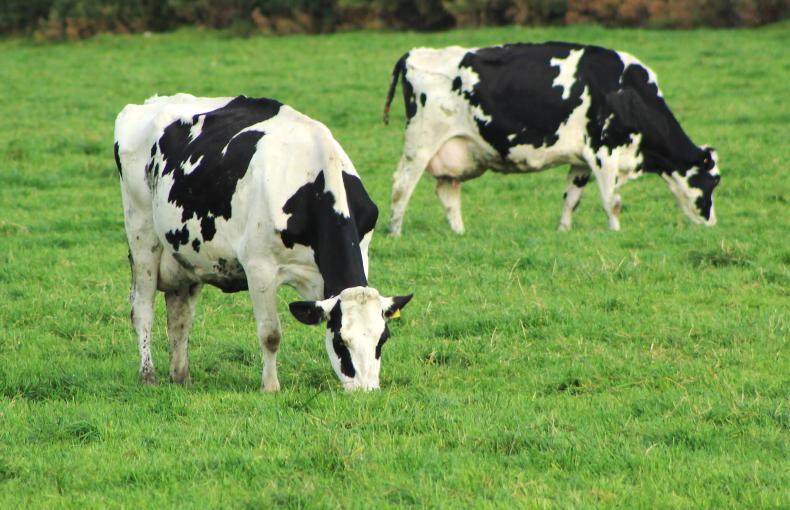The Danish government has announced that it will become the first country to tax emissions from agriculture.
The green tripartite agreement, first announced in June, will see farmers forced to pay a levy of 120 Danish kroner (DKR) (€16.09) per tonne of carbon dioxide equivalent emissions from livestock including cows and pigs in 2030.
This tax will then rise again in 2035 to 300 DKR (€40.23) per tonne of methane.
The new tax became a topic of discussion during the Irish Farmers Journal Dairy Day on Thursday between New Zealand dairy farmer Corrigan Sowman and Dutch dairy farmer Auko Sikkenga.
Sikkenga described how frustrating the new measure will be for his friends who are farming in Denmark.
“I’ve been talking to some Danish farmers, but they don’t know what’s going to happen either,” he said.
“The farmers don’t agree [with the measure] - they say they can’t do it. Like, imagine milking over 300 cows - that’s over €100,000 per year; margins are too tight for that at the moment.”
Tax
In comparison, industry in Denmark will have to pay 300 DKR (€40.23) per tonne of CO2 equivalent on emissions in 2030, which will rise to 750 DKR (€100.57) in 2035.
The measure is part of the government’s plan to make 10% of all of the country’s total land to be forest and nature.
Sowman said that milk processors in his country stood to incentivise reducing emissions instead.
“We [the New Zealand government] were looking, little over a year ago, at being the first country to tax farmers on methane. Fortunately, that didn’t go ahead and the Danes will claim that one,” he said.
“But that really concentrated farmers' focus on [methane reduction] in New Zealand and now the processors are heavily driving us in that direction.”
Compared to Ireland
According to the latest Teagasc sustainability report, the average dairy farm produced 617t of agricultural GHG emissions (in CO2 equivalent) in 2023.
So, if this 2030 Danish emissions tax was applied to Ireland this year, the average Irish dairy farmer would be compelled to pay €9,925.
In addition, if the 2035 model was applied to Ireland today, then the average dairy farmer would be required to pay over €24,820.
